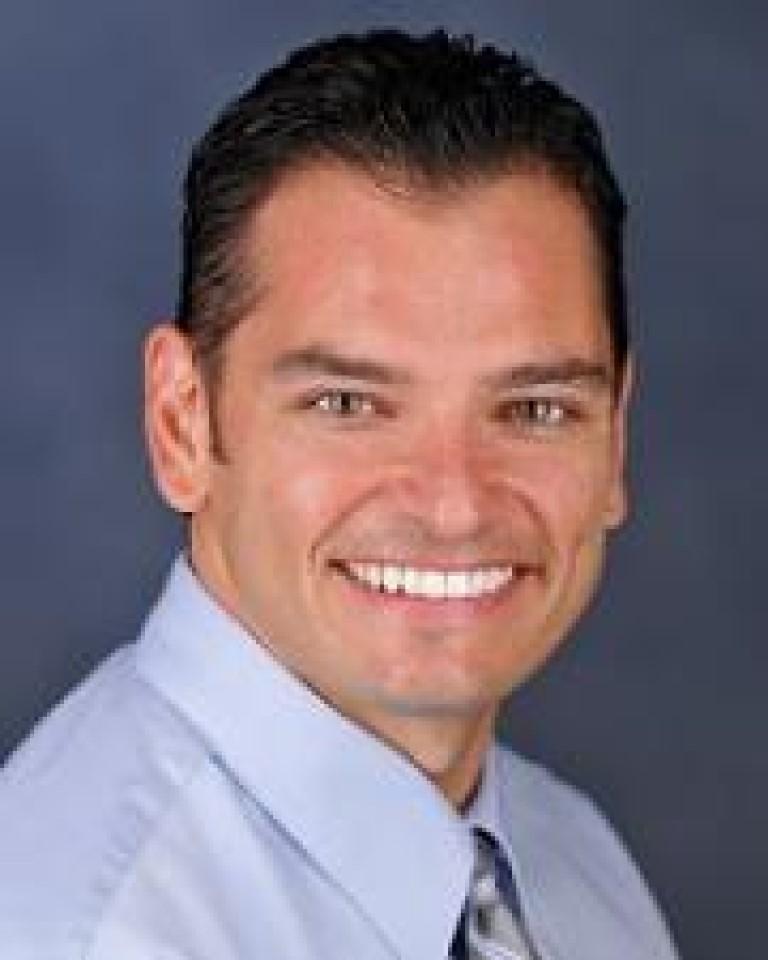Christopher Depcik

MENTOR SPOTLIGHT | JUNE 2016
Department: Mechanical Engineering
Describe your work in a few sentences that we can all understand: Our emphasis is a sustainable approach to energy and transportation, including a Feedstock to Tailpipe analysis of fuel production, combustion, and exhaust emissions through the investigation of conventional and alternative combustion regimes utilizing multiple feedstocks and fuels. This incorporates the development of predictive models for combustion, catalytic exhaust aftertreatment devices (i.e., catalytic converters), and waste heat recovery.
Q: How did you first get interested in doing research?
A: During my undergraduate experience, I took a co-operative educational job at a power plant during which time I worked as a regular engineer for three semesters. Moreover, for my undergraduate senior design (capstone) course, I wrote a computer program that analyzed an Organic Rankine Cycle that operates on solar energy using ammonia as the working fluid. Both of these experiences helped me realize that I wanted to go to graduate school and explore my discipline in more detail through research.
Q: What do students in your discipline learn by doing research that they wouldn’t learn by just taking classes?
A: Often, I find that students want to re-invent the wheel and overdesign for the outcomes. They are taught in classes what they can do, but not what they should do. Hence, as part of overseeing capstone design classes here at KU, I force the students to accomplish peer-reviewed research on their project prior to even starting the design process. During this time, they learn what has been done prior, and realize that they can take a more direct route towards the outcomes by relying on past knowledge to help them streamline their design. As a result, their designs end up being simpler (Occam’s Razor), less expensive, and often come together much quicker. Moreover, by working with undergraduate students to publish their findings (eight technical papers to date), they learn what it takes to document their work in a rigorous manner so that others can learn from their efforts. This will help them at their job, or if they decide on attending graduate school.
Q: What do you find to be the most exciting part of doing research? What makes this line of work meaningful and interesting to you?
A: I learn something new every single day. I believe that is the best part of doing research. There is nothing like coming into a job that challenges you on a daily basis to improve your level of knowledge. I would be bored otherwise.
I have always been concerned about the environment, dating back to high school. The work that my graduate students and I accomplish can be used to make a difference in preserving our environment. Hence, I feel that I finally am able to do what I wanted to achieve in high school. Moreover, I realize the impact I can potentially have on the lives of my students. Receiving an unsolicited e-mail from a previous student having them thank me for pushing them to learn is better than any award or recognition that I can receive. I want to look back on my time here and believe that it mattered beyond any professional achievement.
Q: What advice do you have for undergraduates interested in doing research in your field?
A: Go to graduate school. My field has been around for over 100 years. You will only get a small taste of what can be accomplished by doing undergraduate research. To become an expert, you will need to attend graduate school and spend years researching a single topic. While the last thing that undergraduates might want to hear is “spend more time in school,” graduate school was the best time of my life. You can spend every single day improving yourself in a fantastic environment. Moreover, the best jobs in Research and Development usually require an advanced degree nowadays.
Q: For many students, doing research or a larger creative project is the first time they have done work that routinely involves setbacks and the need to troubleshoot problems. Can you tell us about a time that your research didn’t go as expected? Or about any tricks or habits that you’ve developed to help you stay resilient in the face of obstacles?
A: I remember spending a year just trying to understand the Method of Characteristics better in Computational Fluid Dynamics. For some reason, I just could not get it. It seems like every day, I would wake up, have some brilliant inspiration, go into school, try it, realize I did not know what the heck I was doing, and go home defeated. What I did not understand at the time is that I learned more through this failure. It forced me to do extra research and spend added time writing out my thoughts, subsequently increasing my overall comprehension of the subject. As a result, now I meticulously document nearly everything I study (even typing up all equations) when I delve into it. I know I will forget what I learned, or I may stumble upon something that will actually be important later. By spending a little more time recording my ideas and research, any setbacks actually turn into successes later.
Q: How do you spend your time outside of work?
A: You can find me nearly every morning at the Ambler Student Recreation Fitness Center, in the immortal words of The Rock, “clanging and banging” at 5:30 am. My health is the most important thing to me because without it, you cannot do what you want to do. This is my alone time that helps reduce my stress and anxiety. Without it, I believe I would be overwhelmed. Besides that, I spend it with my lovely wife just relaxing and enjoying life with no agenda.